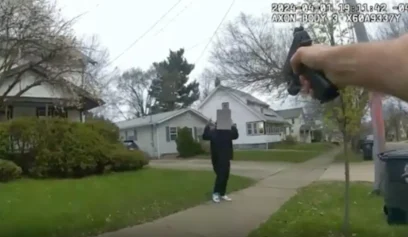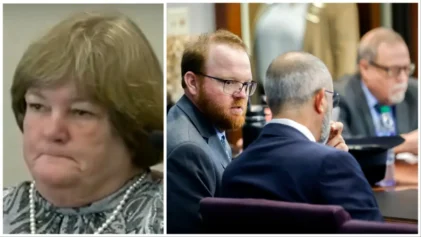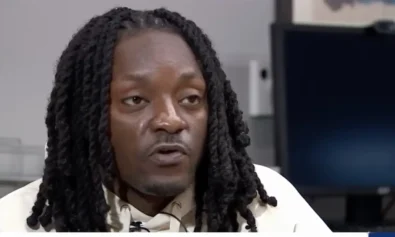
Friendship Nine members Willie Thomas Massey, Willie E. McCleod, James F. Wells, Clarence Graham and David Williamson Jr. (L-R) sit at lunch counter in Rock Hill, South Carolina.
Later this month, the state of South Carolina is going to correct a grievous wrong when it exonerates the nine members of the “Friendship Nine,” the young Black students from Friendship Junior College in Rock Hill who in 1961 became the first U.S. civil rights protesters to serve jail time for sitting at an all-white lunch counter.
As the U.S. observes the Martin Luther King holiday today, amidst an angry climate of racial turmoil, it is a fitting moment to honor the sacrifices made by men like the “Friendship Nine,” who actually served 30-day sentences doing hard labor at the county prison farm and endured the stigma of a criminal record for the next 54 years.
The “Friendship Nine” are credited in the annals of the Civil Rights Movement with helping to galvanize the desegregation fight by using a “jail, no bail” strategy that became a model for other protesters.
While the exonerations may not have much impact on their lives now, the men told Reuters they still welcome the message that will be sent, particularly during this current racial climate.
“For the generations that are here now and for the future, it shows that the country was wrong,” said one of the men, Willie McCleod, 72.
The push for the exonerations came from author Kimberly Johnson, who published a children’s book about the Friendship Nine last year. She told Reuters she was inspired by reading King’s “Letter from Birmingham Jail,” in which he argued in 1963 that he had a moral duty to stand up to unjust laws.
“Injustice anywhere is a threat to justice everywhere,” he famously wrote.
Johnson said it was the same principle that motivated the men from Friendship College who decided to risk arrest at the McCrory’s five-and-dime store’s lunch counter. Their stand came at a time when the sit-in movement, which had begun in 1960 at a segregated Woolworth’s lunch counter in Greensboro, North Carolina, needed to be re-energized. The new thinking was the protests could draw more attention if the protesters went to jail instead of continuing to pay fines.
Clarence Graham, 72, who was 17 at the time, said he had heard that some people who went to jail during that turbulent era were not seen again.
“We didn’t know what to expect,” he said. “It was not a very good time.”
“I had fears about someone exposing me, saying: ‘Do you know what he did?'” Willie Thomas “Dub” Massey, 72, said of his thinking after the jail sentence. Massey went on to serve in the Army and became an educator and minister.
While Solicitor Kevin Brackett had previously believed expunging the men’s records or pursuing pardons seemed inappropriate because it would erase an important part of history or imply the men were seeking forgiveness, he decided on a different tactic this time—prodded by author Johnson. On Jan. 28, according to Reuters, he will argue that the men’s convictions for trespassing should be thrown out because their skin color was the sole reason for their arrests.
There are eight surviving members of the Friendship Nine and they all plan to attend the hearing. It will take place in a courtroom about 500 yards from where the sit-in occurred. After the hearing, the records of the nine will still reflect their arrests—but it will also say they were not guilty of a crime.
“What these gentlemen did was take a courageous stand against an obnoxious and vile policy,” Brackett said. “It’s important that we publicly and legally recognize the wrongfulness of those convictions.”


